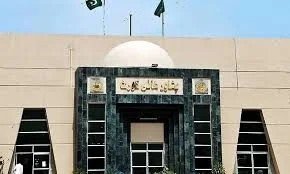
In a significant development on July 1, 2025, the Peshawar High Court (PHC) issued an order halting the swearing-in of members elected on reserved seats in the Khyber Pakhtunkhwa (KP) Assembly. The decision, which has stirred political debate across the country, temporarily restrains these members from assuming office, pending further hearings on the legality of their appointments.
Background: Dispute Over Reserved Seats
The controversy stems from the allocation of reserved seats—specifically for women and minorities—following the 2024 general elections. After the Pakistan Tehreek-e-Insaf (PTI) was barred from contesting the elections under its original symbol due to internal party disputes and legal restrictions, many of its candidates ran independently or under the umbrella of the Sunni Ittehad Council (SIC), a relatively lesser-known religious political group.
The Election Commission of Pakistan (ECP), however, ruled that the SIC was not eligible for reserved seats since it failed to submit a priority list of candidates and did not meet the legal and procedural requirements for allocation. As a result, the ECP redistributed the reserved seats among other political parties, including the Pakistan Peoples Party (PPP), Pakistan Muslim League-Nawaz (PML-N), and Jamiat Ulema-e-Islam-Fazl (JUI-F). This move significantly impacted the parliamentary strength of the SIC-led alliance, depriving them of dozens of additional seats they claimed were rightfully theirs.
The Petition and the PHC’s Interim Decision
The recent PHC order came in response to a petition filed by representatives of the SIC (primarily consisting of PTI-backed candidates), who argued that their party had the electoral mandate in KP and that the ECP’s distribution of reserved seats was both illegal and unjust. The petitioners claimed that they were the largest bloc in the provincial assembly and, therefore, entitled to a proportional share of the reserved seats.
A two-member bench of the PHC, comprising Justice Arshad Ali and Justice Khurshid Iqbal, heard initial arguments and found merit in the petitioners’ request to delay the oath-taking of members currently appointed to those disputed seats. The court issued a notice to the ECP and directed that no member occupying a reserved seat should be administered the oath until further legal clarification is provided.
Legal and Political Implications
The PHC’s decision is not merely procedural—it carries serious constitutional and political consequences. Reserved seats in Pakistan’s assemblies are filled through proportional representation based on party performance in general seats. These seats often make or break coalition governments, especially in closely contested assemblies like that of KP.
By restraining the oath-taking of reserved seat members, the court has effectively frozen the legislative process in the KP Assembly. This creates uncertainty regarding the formation of the provincial government, voting on budget bills, and other key legislative functions. It also puts pressure on the ECP, which now must defend its methodology and justify why the SIC was excluded from the seat allocation process.
ECP’s Position and Previous Justifications
The Election Commission had previously argued that SIC, being a relatively new entrant in the electoral framework and having not submitted a priority list by the deadline, could not legally qualify for reserved seats. The commission maintained that the rules were applied uniformly and that its actions were in line with constitutional provisions and electoral laws.
However, critics have argued that the decision was politically motivated and deprived voters in KP of fair representation. Supporters of PTI and SIC allege that this is part of a broader effort to marginalize their political influence following their landslide victories in the general elections, especially in KP.
What’s Next?
The PHC has not yet ruled on the final legality of the ECP’s decision but has set a crucial precedent by intervening at this stage. A detailed hearing is expected in the coming days, where both the ECP and SIC representatives will present their full arguments. The ruling could potentially lead to a reassignment of reserved seats or even the disqualification of certain members who have already taken the oath, depending on how far the court is willing to go.
In parallel, observers are watching the Supreme Court of Pakistan, which may be called upon to settle the matter if it escalates further. Legal experts suggest that this issue could reshape the parliamentary balance in KP and possibly trigger a broader constitutional review of the reserved seat allocation process.
Conclusion
The Peshawar High Court’s decision to bar the swearing-in of reserved seat members represents a turning point in Pakistan’s post-election political landscape. It reflects deep-seated tensions between the judiciary, the electoral body, and political factions vying for power in a fragmented system. Whether this move restores electoral justice or adds to political instability will largely depend on how the courts navigate the constitutional questions ahead. What is certain, however, is that KP’s political future now hangs in legal limbo.
Reference: پشاور ہائیکورٹ کا بڑا فیصلہ: مخصوص نشستوں پر منتخب اراکین کو حلف لینے سے روک دیا گیا

